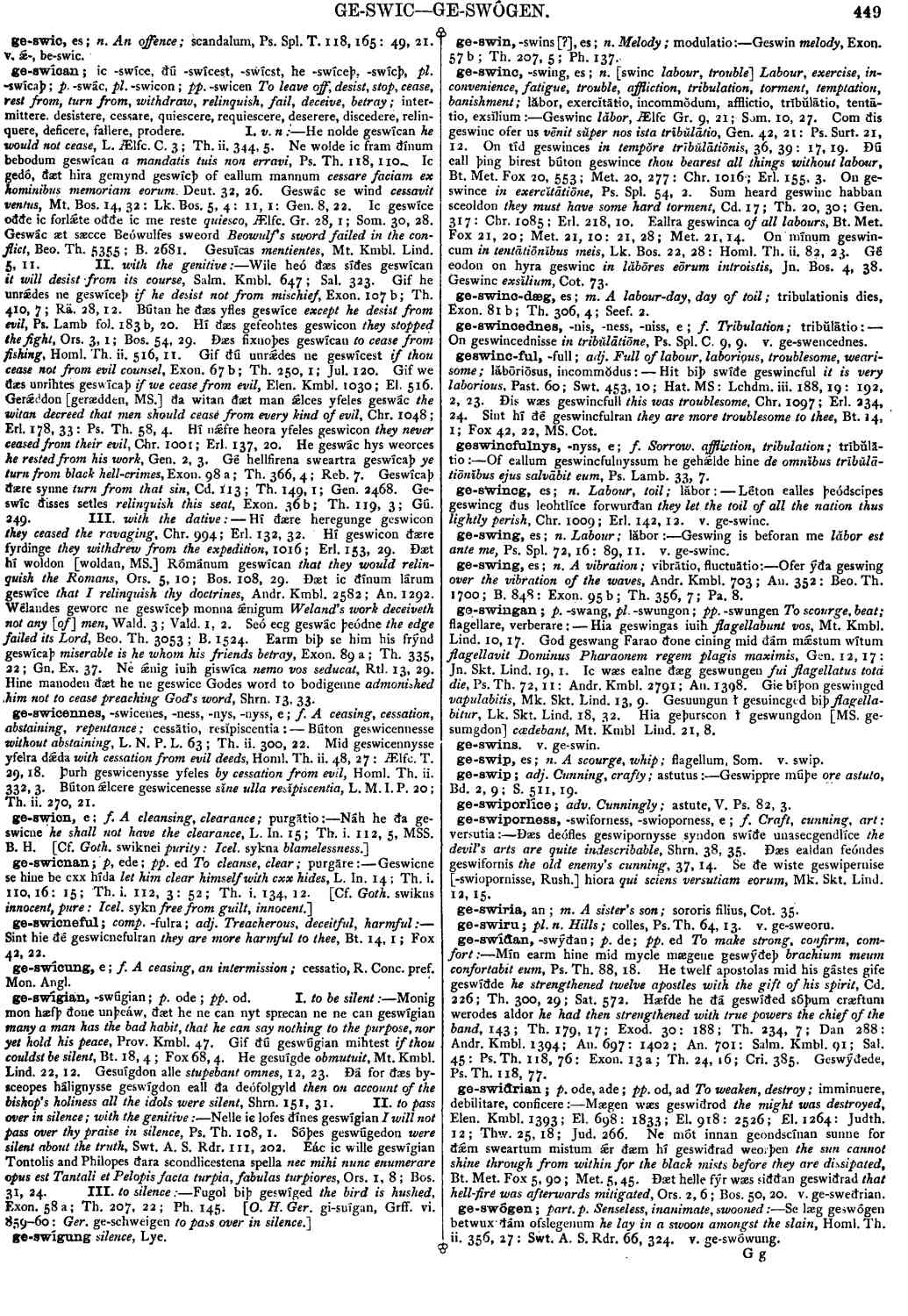ge-swígian
- verb [ weak ]
-
Monig mon hæfþ ðone unþeáw, ðæt he ne can nyt sprecan ne ne can geswígian
many a man has the bad habit, that he can say nothing to the purpose, nor yet hold his peace,
- Prov. Kmbl. 47.
-
Gif ðú geswúgian mihtest
if thou couldst be silent,
- Bt. 18, 4; Fox 68, 4.
-
He gesuígde
obmutuit,
- Mt. Kmbl. Lind. 22, 12.
-
Gesuígdon alle
stupebant omnes,
- 12, 23.
-
Ðá for ðæs bysceopes hálignysse geswígdon eall ða deófolgyld
then on account of the bishop's holiness all the idols were silent,
- Shrn. 151, 31.
-
Nelle ic lofes ðínes geswígian
I will not pass over thy praise in silence,
- Ps. Th. 108, 1.
-
Sóþes geswúgedon
were silent about the truth,
- Swt. A. S. Rdr. 111, 202.
-
Eác ic wille geswígian Tontolis and Philopes ðara scondlicestena spella
nec mihi nunc enumerare opus est Tantali et Pelopis facta turpia, fabulas turpiores,
- Ors. 1, 8; Bos. 31, 24.
-
Fugol biþ geswíged
the bird is hushed,
- Exon. 58 a; Th. 207, 22; Ph. 145.
Bosworth, Joseph. “ge-swígian.” In An Anglo-Saxon Dictionary Online, edited by Thomas Northcote Toller, Christ Sean, and Ondřej Tichy. Prague: Faculty of Arts, Charles University, 2014. https://bosworthtoller.com/16281.
Checked: 0